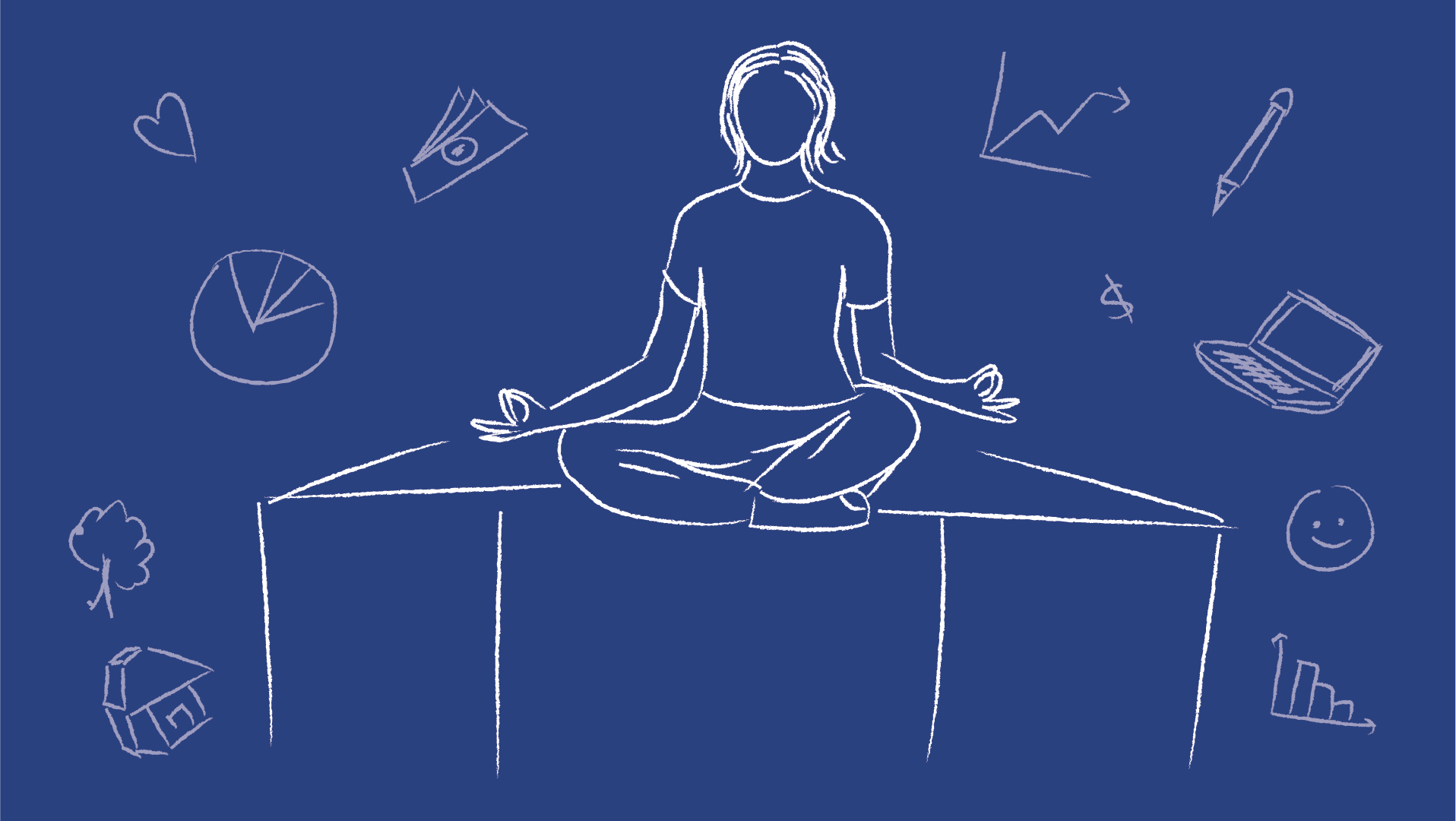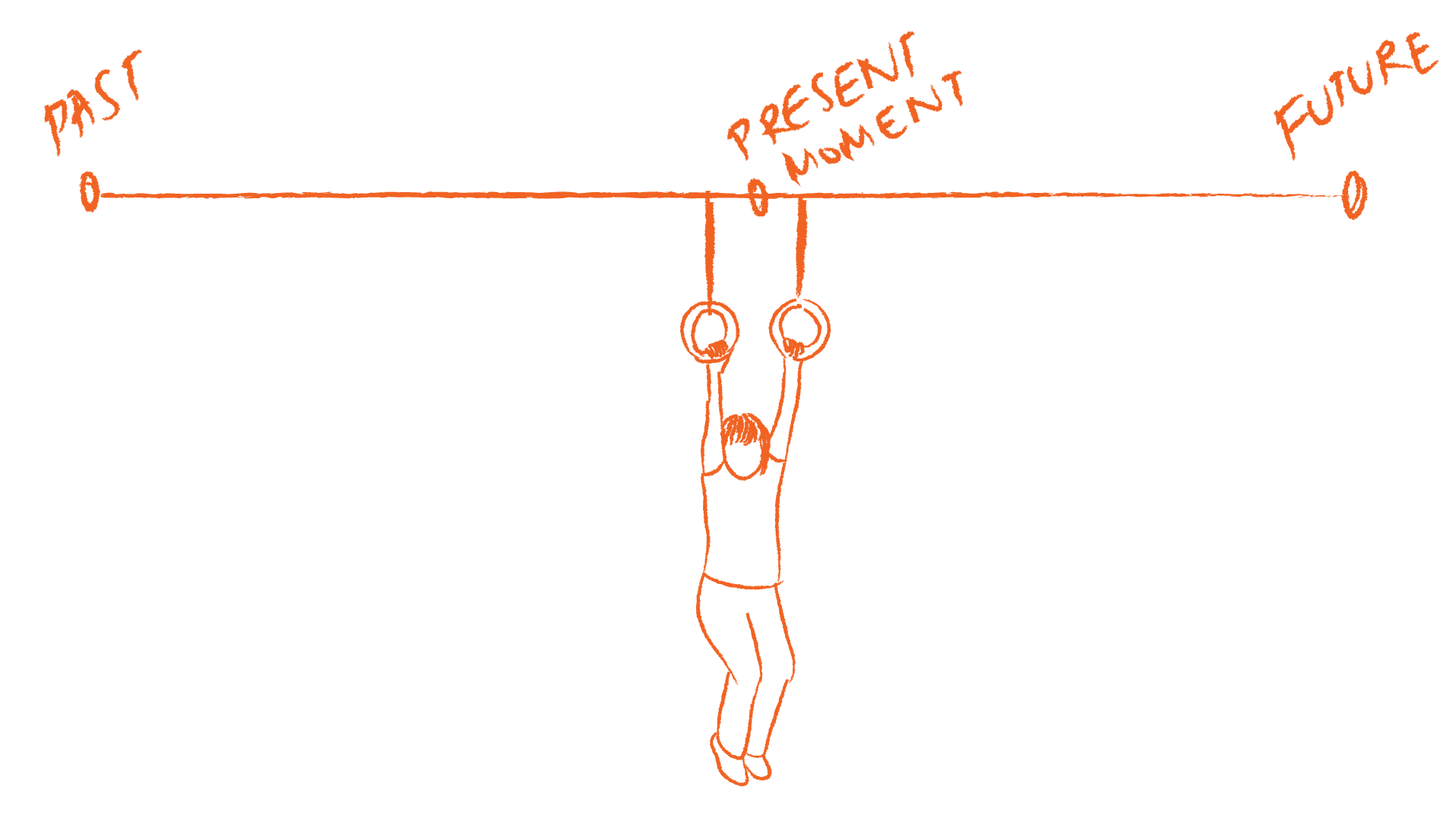A smarter outlook on work and happiness
5 September 2021 — Written by Arpit Chhikara

We all have heard that work is worship. So, why aren’t workplaces around us bubbling with happiness? For that matter, isn’t it ironic that we pay attention to the topic of happiness only when we are… unhappy? Dr Malati Raghunath, a veteran in academia and industry across India and the US seems to have cracked the answers to these often-asked questions around ‘happiness at work’. In her recent workshop at Nudge Talks, Dr Malati took on wide-ranging topics from neuroplasticity to healthy living and a meaningful approach to one’s career - all essential factors in that pursuit of happiness.
What does your job mean to you?
Once we enter adulthood, job and work become an integral part of life. But is the job or work you do, truly what you wish to do? According to psychologist Dr Barry Schwartz, we can look at work in terms of a job, a career and a calling. A job is taken up for survival and paying the bills. Career is more holistic and is about making consistent progress in the long term. And calling is what makes you do things because you want to do them for the greater good. More often than not, being happy in the workplace is about knowing and working in the direction of your ethos or calling or Ikigai.

According to Dan Harris, author of 10% Happier, regular meditation improves grey matter in the brain. This is what allows you to make new neural connections in the brain and is called neuroplasticity. Mindfulness and meditation when combined together lead to great results. For the latter, you could take a course on guided meditation or Vipassana and see what fits you well.
Train your brain to be happy
Is it possible to train your brain to be happy? Absolutely! The brain’s ability to create new neural connections, neuroplasticity, makes it very much possible. Neuroplasticity is what makes us build new habits, memorize new ideas and think out of the box in challenging times. How can you make your brain more flexible? Well, Dr Malati says you can do it in two ways. First, you can start with external changes like a new daily routine, learning new skills and building new friendships. Such actions will stimulate your brain to rewire and adapt. Second, you can proceed with internal changes like meditation and mindfulness, being healthier, visualising and journaling. These actions will make your older neural connections slowly disappear and form newer ones. Two of the best tools to know how to build habits are professor Charles Duhigg’s talk below and James Clear’s book Atomic Habits.
https://www.youtube.com/watch?v=OMbsGBlpP30
Dr Rich Hanson, a leading researcher on neuroplasticity, says that our brains evolve when we want them to. In short, you can be happy by training your brain to operate in a growth mindset. Remember, what makes you happy, may not make me happy. Everyone’s brain is wired differently but we can definitely wire ours better to maximise our happiness.
True sharing is true caring
We all have heard that sharing is caring. But how? The answer is vulnerability, a quality that makes us human. Do you know a lot of people whose mental wellbeing is not in place, they quite often lack a deep sense of connection with friends and family. We are, after all, social animals who like to be around happy and uplifting people. One of the most watched TED Talks on the Internet is by Dr Brene Brown on the power of vulnerability. She says that to connect with those around us, we have to interact with an open heart and express who we truly are. On the surface, vulnerability may come across as being weak. But the ability to share a part of yourself with the world is indeed a courageous deed.
https://www.youtube.com/watch?v=iCvmsMzlF7o
Knowing this, it might be a good practice to regularly meet friends on the weekend, talk to family members over dinner and accept your shortcomings in the workplace. Such small acts of sharing and opening up will make you appear honest and in turn, not hold you back from being authentic and vulnerable.
Much of your happiness lies in your hands
To sum up Dr Malati’s wisdom, the pursuit of happiness is not a goal but a process that one keeps on following. It is better to aim for small acts of progress than “one” particular goal because that latter could lead you to take undue pressure. In the short term, happiness comes from achieving financial goals and seeking resources that help you live with comfort. In the long run, however, happiness comes from deeper relationships, connecting with vulnerability, working towards a calling and practising mindfulness, meditation and healthy habits.
We’ll be happy to know your outlook on happiness at home and at work. Share your thoughts with us at connect@beyond.in and stay tuned for more insights on how to have a more meaningful career by soaking in the wisdom from leaders and speakers at the Nudge Talks.